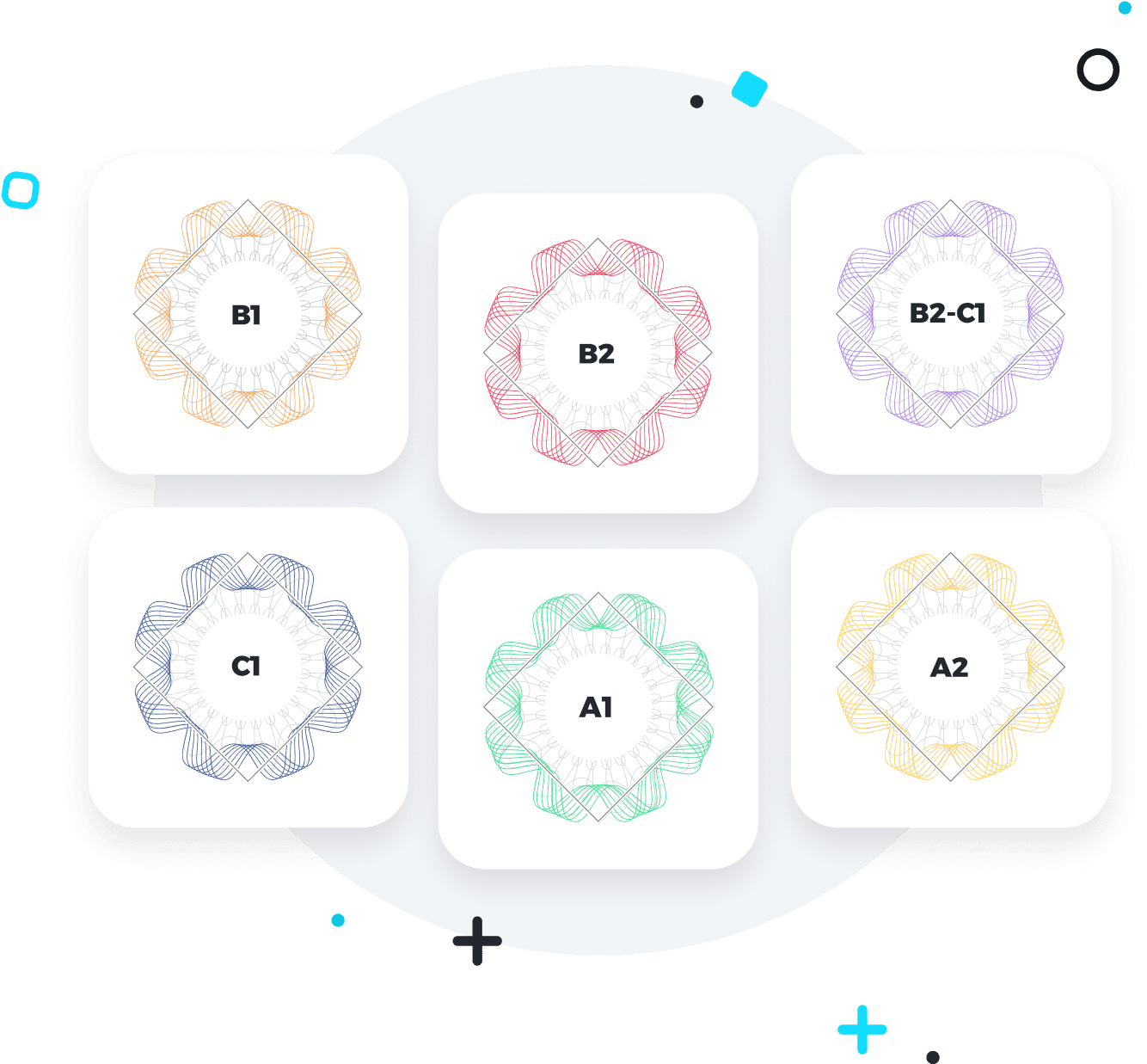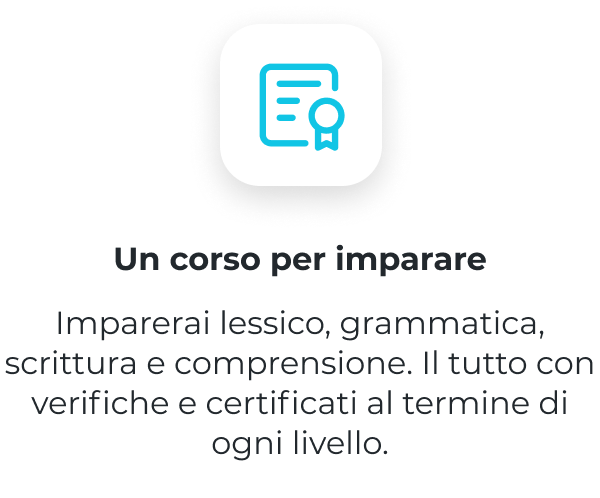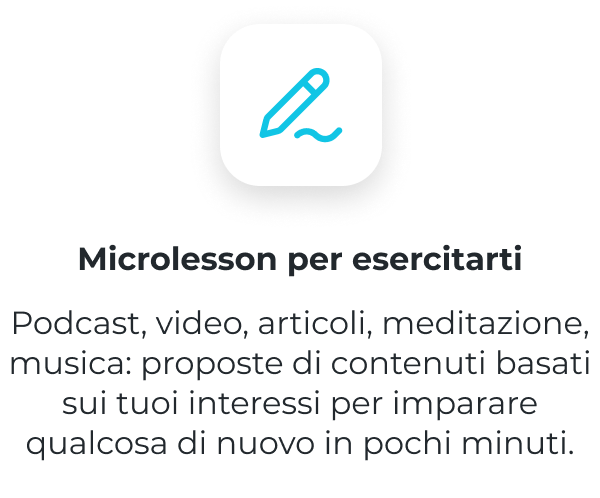Future continuous in inglese
Il future continuous è il tempo verbale appropriato per esprimere qualcosa che accadrà in futuro e durerà per un certo periodo. Se vuoi saperne di più sulla sua struttura e sugli usi, non perdere questo articolo in cui ti spieghiamo tutto ciò che devi sapere.
Cos’è il future continuous in inglese?
Il future continuous, chiamato anche future progressive, è un tempo verbale che viene utilizzato per indicare che qualcosa accadrà in futuro e che continuerà per un certo periodo di tempo. È per questo motivo che uno dei verbi che fanno parte della sua struttura si coniuga come un gerundio, cioè con la desinenza -ing.
Questo tempo verbale è perfetto se vuoi parlare di cosa farai stasera, domani o tra qualche anno. Ma ha anche altri usi che vedremo di seguito.
Uso del future continuous
Proiettarsi nel futuro
Il future continuous in inglese è utile se vuoi esprimere i tuoi progetti per il futuro. Tieni presente che questi progetti devono avere una certa durata nel futuro, cioè non sono solo un’azione specifica e puntuale, ma devono essere prorogati per un certo tempo.
Esempi:
- I will be travelling for two weeks in July. (Sarò in viaggio per due settimane a luglio.)
- By this time next year I will be living in Amalfi Coast. (A quest’ora il prossimo anno starò vivendo nella Costiera Amalfitana.)
Prevedere eventi futuri
Questo tempo verbale può essere utilizzato anche per prevedere o formulare ipotesi su eventi futuri.
Esempi:
- Melanie will be missing the beach once she’s back in Canada. (A Melanie mancherà la spiaggia quando tornerà in Canada.)
- They’ll be joining us shortly, I hope so. (Si uniranno a noi a breve, lo spero)
Chiedere informazioni sul futuro
La forma interrogativa del future continuous spesso si utilizza anche per richiedere informazioni sul futuro.
Esempi:
- Will she be going to the dinner tonight? (Lei verrà alla cena stasera?)
- Will the kids be coming for Thanksgiving? (I bambini verranno per il Giorno del Ringraziamento?)
Parlare di eventi in corso nel futuro
Puoi anche usare il future continuous per fare riferimento a eventi che prevediamo che accadranno in futuro e che avranno una certa durata.
Esempi:
- We’ll be having dinner with Thomas tonight. (Ceniamo con Thomas stasera.)
- I’ll be visiting Van Gogh’s Museum next week. (Visiterò il museo di Van Gogh la prossima settimana.)
+30 MILIONI DI STUDENTI
Unisciti all’accademia digitale d’inglese più
grande del mondo e impara l’inglese
Struttura grammaticale del future progressive
La struttura del future continuous in inglese è abbastanza semplice e sicuramente la ricorderai facilmente con un po’ di pratica. In questo caso, dovrai usare il verbo ausiliare will o il verbo ausiliare shall. Ma diamo un’occhiata più da vicino alla struttura delle frasi affermative, negative e interrogative.
Future continuous in frasi affermative
Nelle frasi affermative si usa l’ausiliare shall e il verbo principale si coniuga come un gerundio, cioè con la desinenza –ing.
Soggetto + will/shall + be + verbo principale –ing + complemento
Esempi:
- They will be playing soccer on Sunday. (Domenica giocheranno a calcio.)
- She shall be sleeping when you get home. (Lei starà dormendo quando tornerai a casa.)
Future progressive in frasi negative
Per la forma negativa del future continuous, l’ausiliare will o shall si trasforma in will not o shall not, o se vuoi usare la contrazione, sarà won’t o shan’t.
Soggetto + will not/shall not + be + verbo principale -ing + complemento
Esempi:
- They will not be taking the swimming course. (Non faranno il corso di nuoto.)
- I shall not be working on Monday. (Lunedì non lavorerò.)
Future continuous in frasi interrogative
Le frasi interrogative al future continuous, come in molti altri casi, richiede l’ausiliare all’inizio della frase.
Will + Soggetto + be + verbo principale –ing + complemento
Esempi:
- Will you be travelling next month? (Viaggerai il mese prossimo?)
- Will you be writing your dissertation this evening? (Scriverai la tua tesi stasera?)
Sai già qual è il tuo livello d’inglese?
Fai subito un test
Registrati nella nostra pagina e accedi gratuitamente al test di livello. Scoprirai il tuo punto di partenza in pochi minuti e potrai continuare ad avanzare con il corso.

Differenza tra Future Simple e Future Continuous in inglese
Il future simple in inglese si usa per parlare di cose che non sono ancora accadute, cioè si usa per azioni o condizioni che inizieranno e finiranno nel futuro. D’altra parte, come abbiamo spiegato prima, il future continuous si usa per esprimere un’azione che verrà svolta in futuro e avrà una certa durata.
| Future simple | Future continuous |
| Soggetto + will + verbo all’infinito + complemento | Soggetto + will + be + verbo –ing + complemento |
Frasi ed esempi al future progressive
- I will be learning English this year. (Quest’anno imparerò l’inglese.)
- She will be eating tacos tonight. (Lei mangerà tacos stasera.)
- They will not be coming to the party. (Loro non verranno alla festa.)
- She will not be working tomorrow. (Lei non lavora domani.)
- Will you be coming home next week? (Tornerai a casa la prossima settimana?)
- Will they be buying the groceries on their way here? (Compreranno generi alimentari lungo il cammino?)
Esercizi con il future continuous
Esercizi con frasi affermative al future continuous
Per ogni frase, scegli una delle opzioni proposte.
1. They can go to the theater tonight. I _____________ dinner for the kids while they’re out.
a. will be cooking
b. will cook
c. will have cooked
2. John and Anna _______________ in New York by the next month.
a. will live
b. will be living
c. will have lived
3. Donna is 2 years old, she _____________ to school, by this time next year.
a. will go
b. will be
c. will be going
Risposte:
1.a, 2.b, 3.c
Esercizi con frasi negative al future continuous
Coniuga i verbi secondo necessità in ogni frase.
- She’s feeling sick, she ______________ (not, go) to school tomorrow.
- I have a different point of view, so I ___________ (not, talk) in the conference.
- They ______________ (not, learn) French this year.
- My mom and I _________________ (not, travel) to Spain.
- He ___________ (not, leave) tonight because of the storm.
Risposte:
- will not be going
- will not be talking
- will not be learning
- will not be travelling
- will not be leaving
Esercizi con frasi interrogative al future continuous
Riscrivi le seguenti frasi in forma interrogativa.
- Dr. Johnson will be attending the conference in Washington.
- I will be going home for the holidays.
- She will be having a work interview.
- They will be booking their flight online.
- We will be cleaning the house the whole day.
Risposte:
- Will Dr. Johnson be attending the conference in Washington?
- Will I be going home for the holidays?
- Will she be having a work interview?
- Will they be booking their flight online?
- Will we be cleaning the house the whole day?
Altri link utili


























